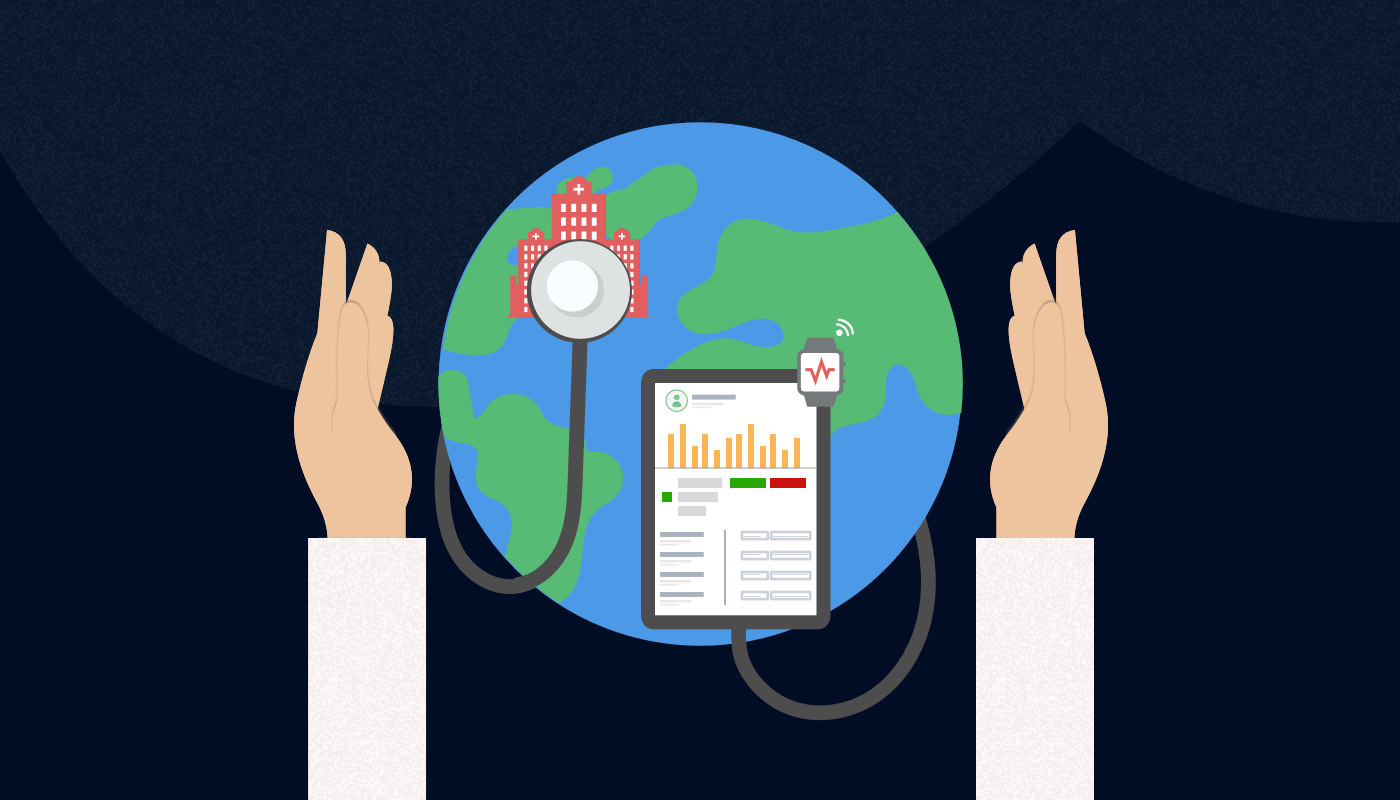
Editor’s Note: Abhinav Shashank is the CEO & Co-founder at Innovaccer Inc., a datashop integrating complex data across multiple distributed sources to give healthcare organizations greater insights to provider better care.
Technology can never replace humans because the ultimate decision-making authority always lies with the individual. He or she can, however, in the course of time, opt for technological solutions that simplify their work and bring about efficiency.
Convenience. Efficiency. Automation. The three words that define everything the Internet of Things (IoT) stands for. IoT is a game-changer technology that has been creating quite a buzz in almost every industry, but has it found acceptance in healthcare? Technology that seeks to connect any device with an on and off switch to the internet and captures and monitors data on devices that are connected to the cloud is sure to make an impact in healthcare.
IoT’s modest beginnings in healthcare can be traced to the use of remote monitoring, smart sensors and medical device integration as well as activity trackers, wearable biometric sensors, glucose monitors, medication dispensers and smart beds.
It would be mind-boggling to imagine what the future of healthcare can be if IoT was expanded and invested in. Take for example, a patient who was notified about his visit to his doctor while simultaneously, informing his doctor on the same because their calendars were connected via the internet. As this patient is on his way, he encounters a bit of traffic and his car sends a text to the doctor notifying him that the patient will be late. We are talking about a technology that will optimize every aspect of care and transform the way it is managed across the continuum.
Why Healthcare Needs IoT?
To Turn Data Into Actions: Quantified health is going to be future of healthcare because health that is measurable can be better improved. Therefore, it is wise to take advantage of quantified health technology. We also know that data affects performance so, an object measurement and tracking of health for better outcomes is why we need IoT.
To Improve Patient Health: What if the wearable device connected to a patient tells you when his heart-rate is going haywire or if he has lagged behind in taking good care of himself and shared that information on other devices that you used while working? By updating personal health data of patients on the cloud and eliminating the need to feed it into the EMRs, IoT ensures that every tiny detail is taken into consideration to make the most advantageous decisions for patients. Moreover, it can be used as a medical adherence and home monitoring tool.
To Promote Preventive Care: Prevention has become a primary area of focus as health care expenses are projected to grow unmanageable in the future. The widespread access to real-time, high fidelity data on each individual’s health will reform health care by helping people live healthier lives and prevent disease.
To Enhance Patient Satisfaction & Engagement: IoT can increase patient satisfaction by optimizing surgical workflow. E.g., informing about patient’s discharge from surgery to their families. It can increase patient engagement by allowing patients to spend more time interacting with their physicians as it reduces the need for direct patient-physician interaction as devices connected to the internet are delivering valuable data.
To Advance Care Management: It can enable care teams to collect and connect millions of data points on personal fitness from wearables like heart-rate, sleep, perspiration, temperature, and activity. Consequently, sensor-fed information can send out alerts to patients and caregivers in real-time so they get event-triggered messaging like alerts and triggers for elevated heart-rate etc. This will not just massively improve workflow optimization but also, ensure that all care is managed from the comfort of home.
To Advance Population Health Management: IoT enables providers to integrate devices to observe the growth of wearables as data captured by the device will fill in the data that is otherwise missed out in EHR. Care teams can receive insight driven prioritization and use IoT for home monitoring of chronic diseases. This is another way that caregivers can make their presence felt in daily lives of the patients.
Barriers to adopting IoT in healthcare
The more obvious challenges to adopting IoT in healthcare are storing, managing and securing data. The lack of EHR integration is another barrier to overcome. The reliability and security issues with data along with interoperability and a lack of training and infrastructure among providers because even when data does flow freely, many providers lack the infrastructure and know-how to access it.
The next tier of problem is lies among the populations that can benefit most from IoT; poor internet access among vulnerable populations including the elderly, those with low education levels, lower-income populations, rural residents and minorities.
The Road Ahead
The popularity of IoT is soaring in other industries like automobile, industrial, civil planning, and even retail. We have talked about connected devices talking to each other and how this would apply to healthcare. In healthcare, IoT will solve the myriad problems by helping optimize the way things are done. With connected technology, providers will see fewer missed appointments, improved adherence to care plans and improved outcomes such as reduced inpatient admissions. Once fully adopted, IoT will align the shared goals of better health, lower costs and improved experience of all stakeholders in healthcare.
